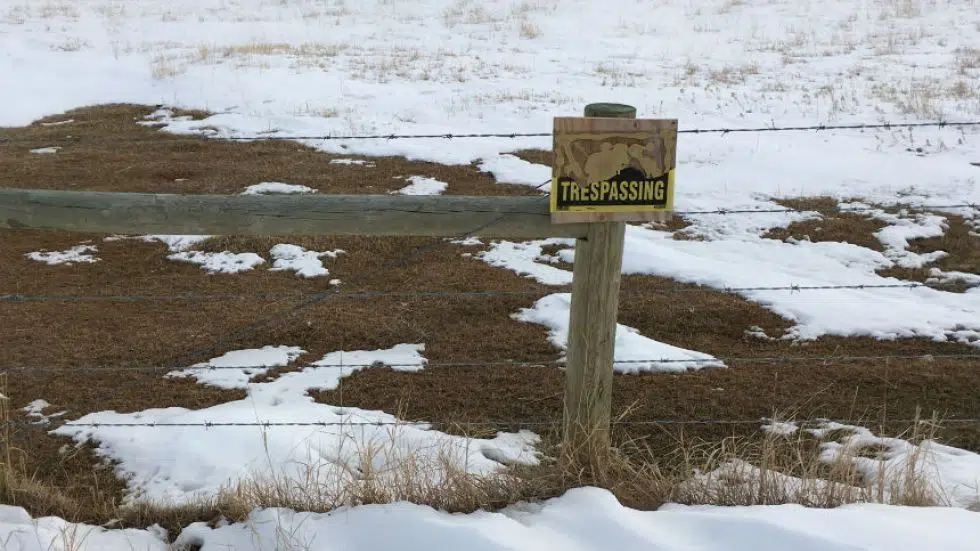
‘Common decency’ to ask permission says landowner on new trespassing laws
One rural landowner is applauding the province for its move to introduce updates to Saskatchewan’s trespassing legislation.
A bill to amend the Trespass to Property Act was introduced in the legislature Tuesday and will shift the onus of responsibility from landowners to those wanting to access the property when it comes to permission.
People will soon be required to first seek prior permission from a landowner to access their private property before entering — be it signed or not — or face a fine. It is currently up to landowners to post signs on their property to deter trespassers.
“It is common decency to ask when you want to go on someone else property because there could be lots of reasons they probably don’t want you on there,” one landowner outside of Meadow Lake said, who did not want to be named out of concerns for her safety. “I don’t know why everyone is getting in such an uproar.”


